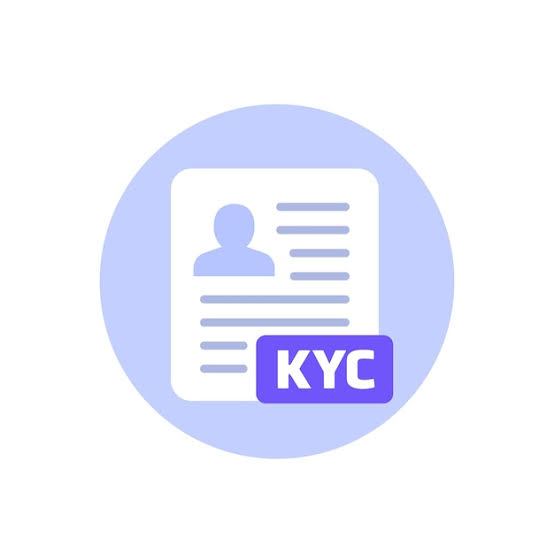KYC Guidelines for NRI

If you’re an NRI planning to open a bank account or invest in India, completing your KYC (Know Your Customer) is the first step. KYC is a mandatory process that verifies your identity and address. It’s required by banks, mutual funds, brokers, and other financial institutions.
Understanding the right documents and process helps you avoid delays and ensure smooth financial transactions.
Table of Contents
Why KYC Matters for NRIs
KYC ensures your account or investment is legally compliant. It helps prevent fraud, maintains transparency, and allows you to fully access financial services in India.
Example: Ramesh, a UAE-based NRI, wanted to invest in mutual funds online. But his application was stuck for weeks due to an incomplete KYC. Once he submitted a notarized passport and proof of overseas address, it got approved within days.
Types of KYC for NRIs
1. Bank KYC
When opening NRE, NRO, or FCNR accounts, banks will ask for:
- Self-attested copy of valid passport
- Valid visa or residency permit
- Proof of overseas address (utility bill, driving license, bank statement)
- Passport-size photo
- FATCA/CRS declaration (for tax compliance)
- In-person verification (may be done via video for some banks)
Some banks accept documents notarized by Indian embassy, local banker, or notary public.
2. Mutual Fund KYC
Before investing in mutual funds, NRIs need to complete KYC via a SEBI-registered KYC Registration Agency (KRA) like CAMS or KFintech.
Documents needed:
- PAN Card (mandatory)
- Passport copy (self-attested)
- Overseas address proof
- Recent passport-size photograph
- Signed KYC form
You may also be asked to complete In-Person Verification (IPV), which can be done through video or at designated branches.
Tip: You only need to do KYC once. It’s valid across all mutual fund houses in India.
3. Stock Market KYC
For equity investments via a PIS (Portfolio Investment Scheme) account, your KYC must be done with:
- Your broker (e.g., Zerodha, ICICI Direct)
- Linked NRE/NRO account
- PAN card
- Proof of overseas address
- Passport and visa copies
You’ll also need a Demat and trading account, and must comply with RBI rules through the designated bank branch.
Common KYC Mistakes NRIs Should Avoid
- Submitting outdated address proofs or expired passport copies
- Skipping PAN card—this is mandatory for most investments
- Not doing IPV (In-Person Verification) or assuming it’s optional
- Ignoring FATCA declaration—especially for US/Canada-based NRIs
- Using an Indian address instead of an overseas one (for NRE/NRO KYC)
Tips for Smooth KYC Process
- Ensure all documents are self-attested and clearly visible
- Use Aadhaar only if you’re eligible as per UIDAI rules (most NRIs aren’t)
- Check if your bank or broker supports online KYC or video KYC
- If stuck, email or speak to the relationship manager—they often assist with documentation
- Retain scanned copies of all submitted documents for future use
Updating KYC After Address or Status Change
If you move countries or your visa status changes, update your KYC with the concerned institutions. Most platforms allow digital updates now. Regular KYC refresh (especially with mutual funds) is mandatory every 2–5 years.
FAQs-Frequently Asked Questions
Q1: What is KYC for NRIs in India?
KYC (Know Your Customer) is a regulatory process to verify an NRI’s identity and address. It is mandatory for opening bank accounts or investing in financial products.
Q2: Which documents are required for NRI KYC?
NRIs need to submit a valid passport, visa/residence permit, overseas and Indian address proof, and a recent photo. Some institutions may request in-person verification.
Q3: Can KYC be done online for NRIs?
Yes, many banks and platforms offer video KYC or Aadhaar-based eKYC. However, some may still require physical document attestation or embassy notarization.
Q4: Is KYC needed for mutual fund investments by NRIs?
Absolutely. All NRI investors must complete KYC through a SEBI-registered KYC Registration Agency (KRA) before investing in Indian mutual funds.
Q5: How often should NRIs update their KYC?
KYC details must be updated if there’s a change in address, residency, or passport. Periodic updates may be required based on risk category classification.
Related Posts You May Like
• 👉 NRI Banking Simplified: Guide to NRE, NRO & FCNR
Conclusion
KYC is more than just paperwork—it’s your gateway to seamless banking, investing, and repatriation in India. Completing it correctly saves time, keeps you compliant, and opens doors to financial opportunities.
As an NRI, staying proactive with your documentation ensures your money works for you across borders. Take the time to complete or update your KYC today—and avoid unnecessary delays in your financial journey.
